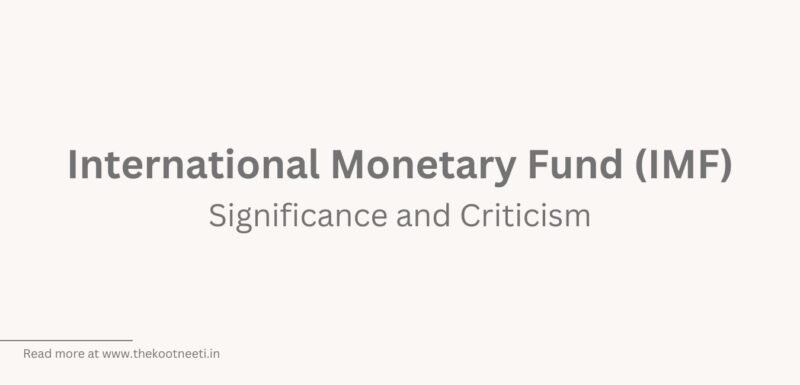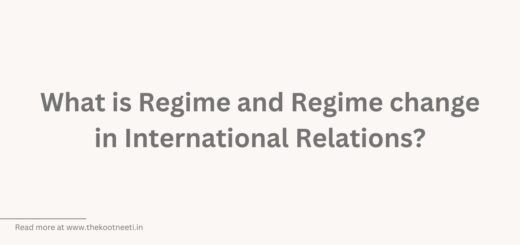International Monetary Fund (IMF): Significance and Criticism

The International Monetary Fund (IMF) is an international organization that was established in 1944 to promote international financial stability and cooperation. It is headquartered in Washington, D.C., and is composed of 189 member countries.
The IMF’s main functions include providing financial assistance to countries experiencing economic difficulties, promoting international trade and investment, and providing technical assistance and policy advice to member countries. The IMF provides financial assistance to countries through a variety of programs, including its financial crisis prevention and management facilities, which provide loans to countries experiencing balance of payments difficulties. In return for financial assistance, the IMF often requires countries to implement economic and financial policy reforms, which are designed to address the underlying causes of their economic problems and promote long-term stability.
The IMF has faced criticism in the past for the conditions it has attached to its loans and for its perceived focus on promoting liberalization and market-based policies. However, it has also played a significant role in helping countries to stabilize their economies and prevent financial crises.
The International Monetary Fund (IMF) has played a significant role in the global economy since its establishment in 1944. Some of its notable achievements include:
- Providing financial assistance to countries experiencing economic difficulties: The IMF has provided financial assistance to many countries facing economic crises, including through its financial crisis prevention and management facilities. This assistance has helped to stabilize economies and prevent financial crises from spreading.
- Promoting international trade and investment: The IMF has helped to promote international trade and investment by providing policy advice to member countries and by helping to create a more stable and predictable global economic environment.
- Providing technical assistance and policy advice: The IMF has provided technical assistance and policy advice to member countries, helping them to improve their economic policies and institutions.
- Promoting financial stability and cooperation: The IMF has played a significant role in promoting financial stability and cooperation among its member countries, helping to prevent financial crises and promoting economic growth and development.
- Responding to the COVID-19 pandemic: In response to the COVID-19 pandemic, the IMF has provided financial assistance to many countries and has implemented a number of measures to support the global economy, including the creation of a special facility to provide debt relief to the poorest countries.
Criticism of IMF
The International Monetary Fund (IMF) has faced criticism from various quarters over the years. Some of the main criticisms of the IMF include:
- Conditionality of loans: The IMF often requires countries to implement economic and financial policy reforms in return for financial assistance. These reforms, known as “conditionality,” have been criticized for imposing unpopular measures on recipient countries and for being too focused on market-based policies, such as deregulation and privatization.
- Influence of major economies: Some critics have argued that the IMF is dominated by the interests of major economies, particularly the United States, and that it disproportionately influences the policies of smaller, poorer countries.
- Lack of transparency: The IMF has been criticized for being opaque in its decision-making processes and for not being accountable to its member countries or the public.
- Impact on developing countries: The IMF’s policy recommendations and loan conditions have been criticized for disproportionately affecting poorer countries and for contributing to economic inequality and social unrest.
- Influence on global financial stability: Some critics have argued that the IMF’s policies and practices have contributed to global financial instability and have exacerbated economic crises.


















